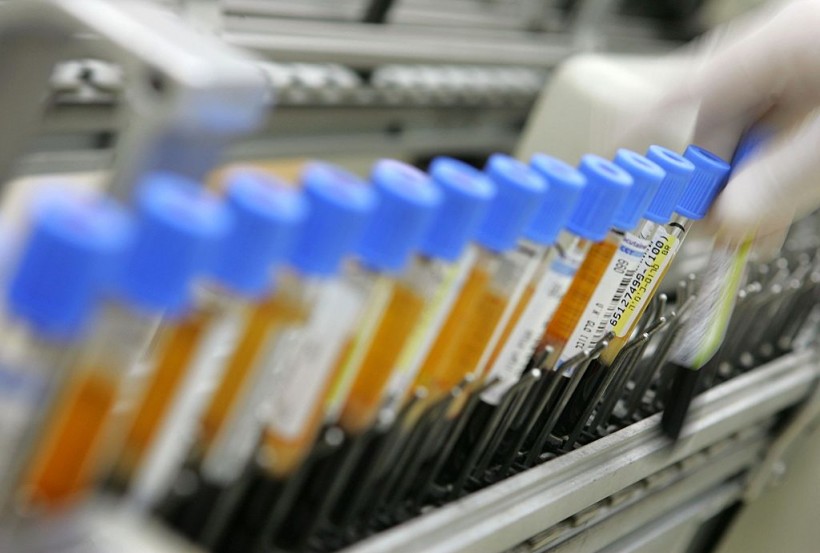A blood test for detecting Alzheimer's disease is emerging as a game-changer, rivaling the accuracy of invasive lumbar punctures.
The study by Dr. Nicholas Ashton and colleagues at the University of Gothenburg introduces a non-invasive alternative that could revolutionize Alzheimer's diagnosis, as reported in the Jama Neurology journal.

A laboratory technician places human blood samples on an automated testing line at the Maccabi Health Services HMO central laboratory January 22, 2006 in Nes Tsiona which is located in central Israel.
Effective Alzheimer's Diagnosis via Blood Test
The research focused on a blood test measuring levels of a protein called p-tau217, a marker for biological changes associated with Alzheimer's disease (via The Guardian).
The study, involving 786 participants, demonstrated that the ALZpath p-tau217 test is as accurate as lumbar punctures in identifying the signs of Alzheimer's.
Moreover, it outperformed several other tests currently in development, categorizing patients as likely, intermediate, or unlikely to have Alzheimer's.
Experts, including Dr. Richard Oakley from the Alzheimer's Society, hailed the study as a welcome step forward. Dr. Oakley noted that blood tests could offer accuracy comparable to more invasive and expensive tests, potentially streamlining the diagnosis pathway.
However, he emphasized the need for further research across diverse communities to assess the test's effectiveness for everyone with Alzheimer's.
Less Invasive Procedure
The current diagnostic challenges involve invasive procedures like lumbar punctures or amyloid PET scans, which are available in only about one in 20 NHS memory clinics.
Dr. Sheona Scales, a director of research at Alzheimer's Research UK, highlighted the study's significance, suggesting that measuring p-tau217 levels in the blood could be as accurate as lumbar punctures in detecting the biological hallmarks of Alzheimer's disease.
One noteworthy proposal from the study comes from Prof. David Curtis, an honorary professor at the UCL Genetics Institute. Prof. Curtis envisions routine screening for individuals over 50, akin to screening for high cholesterol.
This could potentially enable early diagnosis and intervention, with the hope that currently available treatments for Alzheimer's disease might work better when administered early.
Read Also: Does Ozempic and Wegovy Increase the Risk of Suicidal Thoughts? New Study Reveals the Answer
Future of Alzheimer's Diagnosis
The blood test's commercial availability and demonstrated accuracy establish it as a valuable tool for identifying Alzheimer's disease in both clinical and research settings. The study also showed reference ranges for abnormal Aβ levels, enhancing the reliability of test interpretations across different participant groups.
Over eight years, the researchers observed longitudinal changes in p-tau217 levels in individuals with Alzheimer's pathology. The blood test successfully detected changes in those positive for both Aβ and tau, offering promising implications for tracking the progression of Alzheimer's disease over time.
The potential widespread use of high-performing blood tests could ease the accessibility of Alzheimer's disease diagnosis. Dr. Scales emphasized the need to understand better how these blood tests perform in real-world healthcare systems, underlining the importance of their reliability beyond controlled research environments.
Stay posted here at Tech Times.
Related Article: Georgetown Study Sparks Hope for Reversing Alzheimer's from Head Trauma

Tech Times





